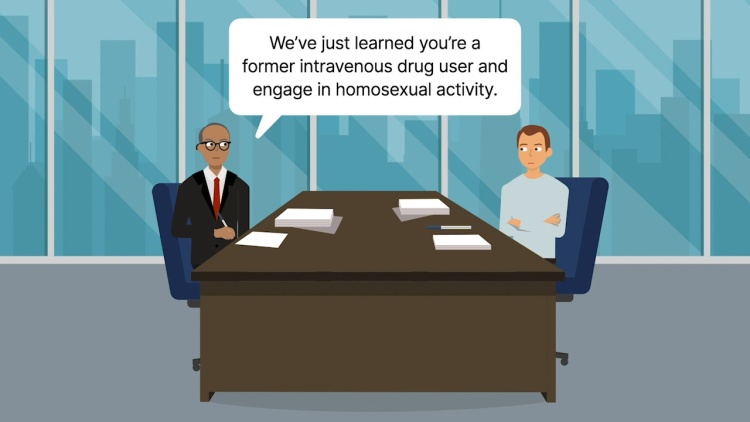Sacramona v. Bridgestone/Firestone, Inc.
United States District Court for the District of Massachusetts
152 F.R.D. 428 (1993)
- Written by DeAnna Swearingen, LLM
Facts
Robert J. Sacramona (plaintiff) was hurt when the tire he was mounting exploded. Sacramona sued Bridgestone/Firestone, Inc. (Bridgestone) (defendant), the tire manufacturer, and The Budd Company (Budd) (defendant), the rim manufacturer, for damages related to his personal injuries, including future loss of income, medical costs, and disability. Sacramona had been an intravenous drug user, who shared needles and engaged in unprotected homosexual sex, activities that increase the risk that a person will acquire Human Immunodeficiency Virus (HIV) and Acquired Immune Deficiency Syndrome (AIDS). Sacramona refused to allow his doctor to perform an HIV test. During discovery, Budd moved the court to compel Sacramona to take an HIV test. Bridgestone then offered a memorandum in support of Budd’s motion. Both defendants argued that the results of the HIV test were essential to Sacramona’s claim for future damages, because Sacramona’s life expectancy would be significantly impacted by his HIV status. Thus, the defendants argued that if Sacramona would not submit to the test, the court should forbid him from seeking future damages. Sacramona objected to the motion on statutory and constitutional grounds, claiming that a court order requiring him to submit to the test would violate his right to privacy and result in “unjust oppression, embarrassment and annoyance.”
Rule of Law
Issue
Holding and Reasoning (Bowler, J.)
What to do next…
Here's why 907,000 law students have relied on our case briefs:
- Written by law professors and practitioners, not other law students. 47,100 briefs, keyed to 996 casebooks. Top-notch customer support.
- The right amount of information, includes the facts, issues, rule of law, holding and reasoning, and any concurrences and dissents.
- Access in your classes, works on your mobile and tablet. Massive library of related video lessons and high quality multiple-choice questions.
- Easy to use, uniform format for every case brief. Written in plain English, not in legalese. Our briefs summarize and simplify; they don’t just repeat the court’s language.





